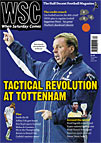 Their 1990 victory over Austria traumatised the opposition and the Faroese have been reopening old wounds, reports Paul Joyce
Their 1990 victory over Austria traumatised the opposition and the Faroese have been reopening old wounds, reports Paul Joyce
The Faroes’ first competitive international, on September 12, 1990, has passed into football folklore. As none of the 18 islands that comprise the North Atlantic archipelago had a suitable grass pitch, their opening Euro 92 qualifier took place in Landskrona, Sweden. Their opponents, an Austria side that had just played at Italia 90, were so dismissive of the Faroese amateurs that striker Toni Polster predicted a 10‑0 landslide. The Austrians even cancelled their final training and went to watch Denmark play Wales in Copenhagen.
Yet they had reckoned without the heroics of Faroe Islands goalkeeper Jens Martin Knudsen, a forklift truck driver in a fish factory who had worn a white bobble-hat since suffering concussion at the age of 13. A second-half goal from Torkil Nielsen gave the islanders a shock 1-0 victory, which Faroese musician Teitur Lassen recently compared to the first moon landing.
The impact of the match on the two countries could not have been more different. “The defeat put Austrian football back three years,” midfielder Andreas Herzog has said. Josef Hickersberger, renamed “Färöer-Pepi” by the media, had to resign as coach the next day. Having been reappointed in 2005, one of his reasons for quitting again after Euro 2008 was that Austria had to travel to the Faroes in October for a 2010 World Cup qualifier. “I would have been shaking for a whole month ahead of the game,” Hickersberger stated. “It was a personal tragedy for me, the bitterest moment of my career.”
In the Faroes, however, half of the islands’ 48,000 inhabitants turned out to greet the victors on their return. Football replaced rowing as the country’s most popular sport and youth development has flourished. Three young Faroese players are currently at Aberdeen and striker Christian Mouritsen played in the same Manchester City youth team as Micah Richards.
But although the national side lost only narrowly to Germany in 2003 and Italy in 2007, the Faroes’ sole victories since 1990 have come against fellow minnows such as Malta and Luxembourg. Jogvan Martin Olsen, who stood down as coach in October, argued: “The lack of professionalism in our own competition and no players breaking through abroad are the main reasons we can’t make any mark in international football.”
The rise of semi-professionalism in the domestic league (Formuladeildin) has raised standards – B36 Torshavn eliminated Icelandic and Maltese teams in European competitions in 2005 and 2006. But top players now earn enough at home to turn down moves to leagues of better quality, such as the Danish second division. “Instead of a high-risk move abroad, they can have a good civil job besides a football career in the Faroes, without high demands on physical fitness and a professional way of living,” explains Ingi Samuelsen of the Faroese Football Association. “They can remain stars in the Faroese league instead of being Mr Nobody in a foreign country.”
When Austria arrived in Torshavn in October for their 2010 World Cup qualifier, their Faroese hosts had lost their last 21 competitive games and sunk to 198th in the FIFA world rankings. Memories of Landskrona 1990 were everywhere. Jens Martin Knudsen, now a coach with the national side, had his bobble-hat flown in from an exhibition of Faroese art in – of all places – Vienna, where it was on show with a statue of Torkil Nielsen and video highlights of the 1-0 victory. Yet under new coach Karel Brückner, Austria had beaten France 3-1 in a group match in September. What could possibly go wrong this time?
Quite a lot, as it turned out. Austrian TV viewers switched on to find that the satellite link had failed and no live footage was available. On the pitch, Austria had two goals disallowed in the first 25 minutes and fell behind shortly after half-time when 19‑year-old medical student Bogi Lokin, whose father had played in 1990, fired the Faroes into the lead. Although Martin Stranzl equalised almost immediately, Austria never looked like breaking down a well organised Faroese 4-4-2 formation again.
Wigan’s Paul Scharner blamed the high winds at the Torsvollur Stadium, one of two grass pitches in the Faroes, for the 1-1 draw. “If it was ski-jumping, they’d close down the venue,” he fumed. “They should build an indoor ground or catch fish.” So why had Austrian officials ever agreed to play the tie in the blustery Faroese autumn?
Amid criticisms of Brückner for only watching domestic matches on DVD, the Austrian tabloid Krone wailed: “The whole football world is laughing at us again.” Which is patently untrue: many observers are stifling their guffaws until the Faroes visit Austria for the return fixture next September.
From WSC 262 December 2008